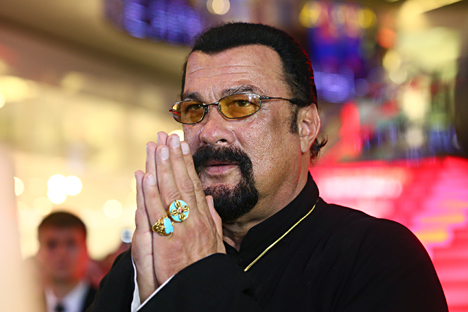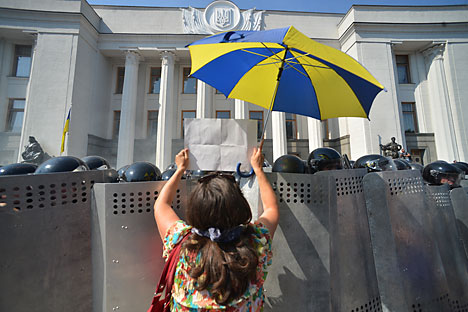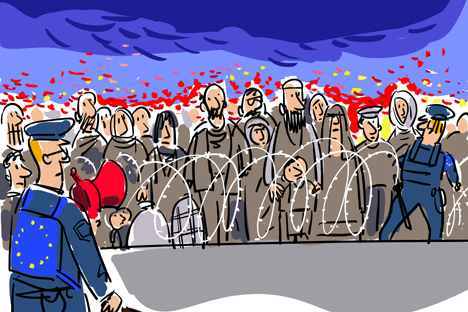Press Digest: Will Steven Seagal front Russia’s anti-alcohol campaign?

American actor Steven Seagal at the star unveiling ceremony for the actor on the Moscow Alley of Glory in Moscow’s VEGAS trade centre. Source: Alexander Shcherbak/TASS
Alexander Shcherbak/TASSSteven Seagal ready to become the face of anti-alcohol campaign
U.S. action movie star Steven Seagal has told the centrist broadsheet Izvestiya that he would be ready to participate in a Russian anti-alcohol campaign.
"I would like to help, but I need to know the details," Seagal said, commenting on the proposal.
Earlier it became known that U.S. boxing star Roy Jones Jr. and actor Steven Seagal had been asked to be the faces of a Russian anti-alcohol campaign. A letter with the initiative was written by member of the Russian Presidential Presidium Council on the Development of Civil Society and Human Rights Yana Lantratova and sent to the government and various celebrities.
"Considering the fact that the position of public opinion leader plays a significant role among the youth, we find it advisable to personify the education campaign in question and thus ask boxer Roy Jones [Jr.] and actor Steven Seagal, who are the popular among the young generation, to become its public faces," wrote Lantratova.
Russia’s iconic weapons manufacturer Kalashnikov Concern had also wanted to attract Seagal for its advertising campaign, but the contract was not concluded. One of the reasons was the sanctions against Russia, due to which the American market was closed to Kalashnikov products.
Estonian Foreign Minister: Plans include the erection of a wall’
In an interview with the Kommersant business daily, Estonian Foreign Minister and former Ambassador to Russia Marina Kaljurand spoke about bilateral relations, about the case of Estonian citizen Eston Kohver, allegedly kidnapped from Estonian territory by Russian security services, and about the possibility of canceling (or intensifying) European sanctions against Russia.
Commenting on earlier news of the Estonian government's desire to build a wall on the border with Russia, Kaljurand said: "We have various plans and some of them include the erection of a wall or some kind of barrier. But this will not happen right away."
While speaking about sanctions against Russia, the foreign minister underlined that Estonia shares the single European position.
"In order to start speaking about the cancelation of the sanctions, Russia must start implementing the Minsk Agreements. But if on the contrary the situation worsens, then naturally we within the EU will discuss the intensification of the sanctions," he said.
The minister also remarked that Kiev "has the political will to implement the agreements," while the unrecognized Donetsk and Lugansk “people’s republics” "are not even making the initial steps."
Nevertheless, Kaljurand stated that despite the situation between Russia and the EU, Estonia is very happy to welcome Russian tourists. "We are expecting them and will do everything so that it is easy for them to come to Estonia and so that their stay is comfortable."
9/11: Washington’s 14-year war with terrorism
The independent online newspaper Svobodnaya Pressa remembers the 9/11 tragedy in the U.S. and sums up Washington’s 14-year war on terrorism.
The terrorist acts carried out by Al Qaeda militants on September 11, 2001 were the largest in American history.
After the tragedy the U.S. government immediately announced a total war on international terrorism. But has the U.S. achieved any success in its 14-year battle against terrorism with the military operations in Afghanistan and Iraq?
In the opinion of Vladimir Batyuk from the Russian Academy of Sciences’ Institute for U.S. and Canadian Studies, from the military-technical viewpoint, American intelligence agencies have made much progress since 2001.
"We can objectively see the appearance of new technical means of warfare – tactical and attack drones, the M1126 Stryker armored personnel carrier and so on. Never since the end of the Cold War has the American defense budget been so extensive."
"But if we look at the political consequences, we see the destabilization of the situation in the Middle East, the serious strengthening of terrorist groups and their advancement to a new level after the appearance of Islamic State [ISIS]. And this is obviously a failure, both political and military," said Batyuk.
All rights reserved by Rossiyskaya Gazeta.
Subscribe
to our newsletter!
Get the week's best stories straight to your inbox

